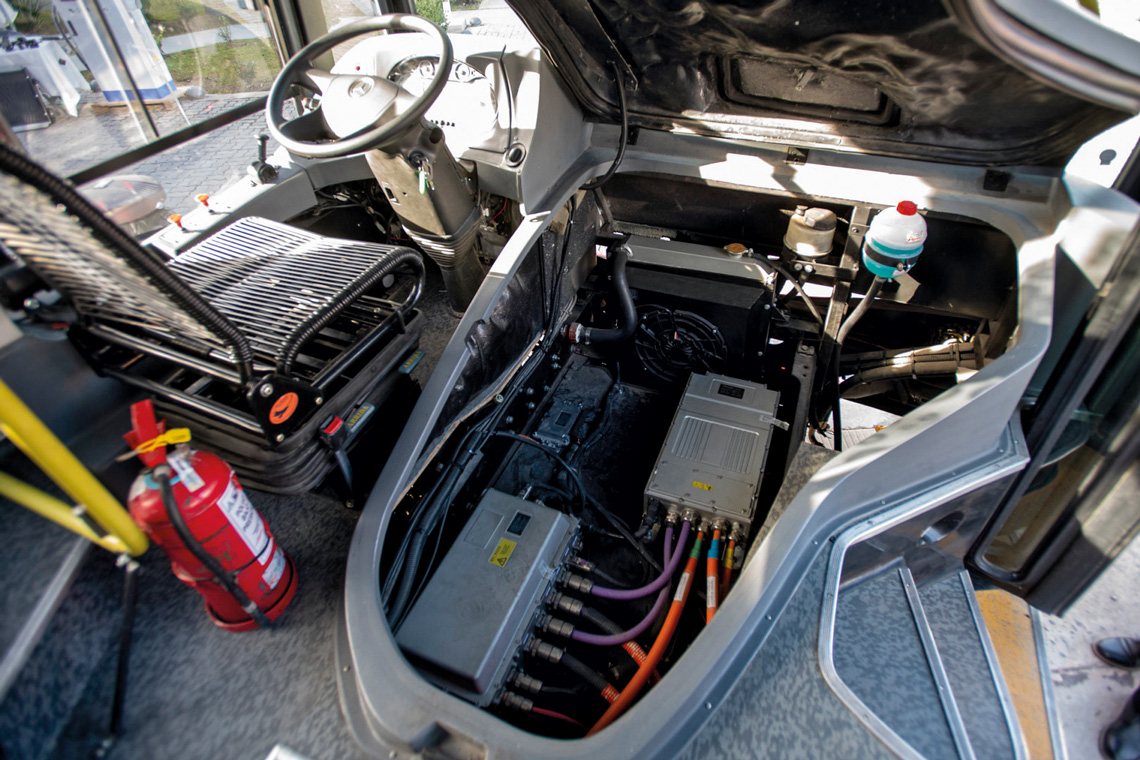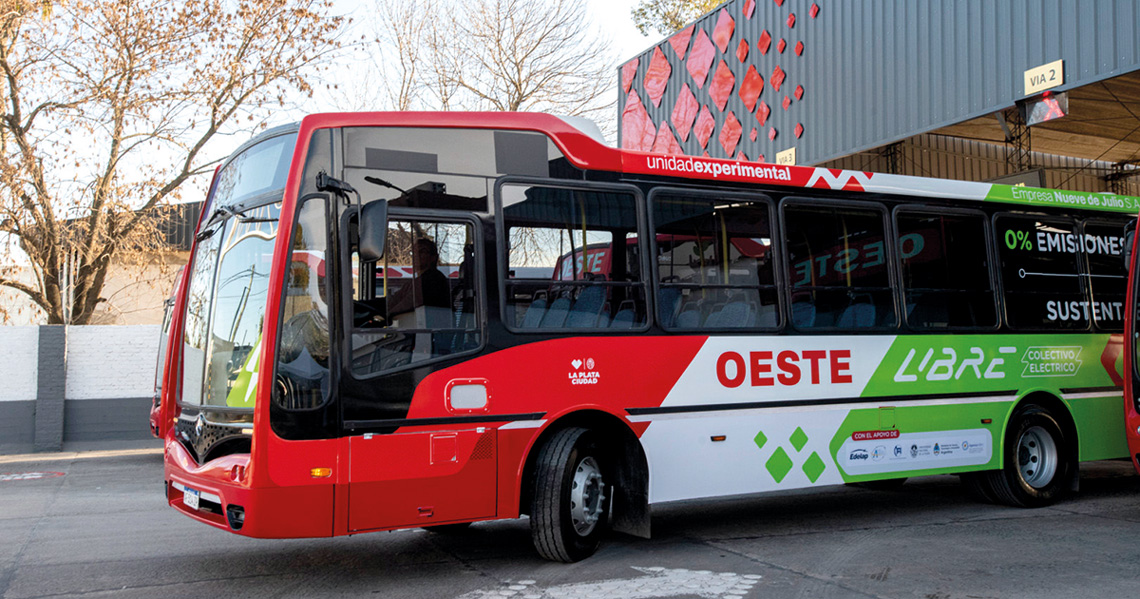In June, a new electric bus powered by a lithium battery entered operations in the city of La Plata, in the province of Buenos Aires, Argentina. It is the first of its kind in the country. With a range of 200 kilometers (the previous prototype had a range of just 60 kilometers) and a charging time of four to six hours, the bus originally had a conventional engine and was converted by professors and students from the School of Engineering and the Aerospace Technology Center at La Plata National University (UNLP), in collaboration with the company Nove de Julho. The electrical assembly and brake and suspension systems were maintained, but with a new battery and engine. The project received 4.9 million pesos in funding (US$17,700) from the country’s Ministry of Science, Technology, and Innovation (MCTI). Already common in Europe and Asia, this type of electric bus is silent and has the potential to emit almost zero pollutants, but it is heavier and has less range than a conventional bus. The additional weight of the batteries results in a lower passenger capacity (UNLP and MCTI, June 5).

MCTIThe bus was converted, with the original combustion engine and fuel tank replaced by a new electric engine and lithium batteriesMCTI
